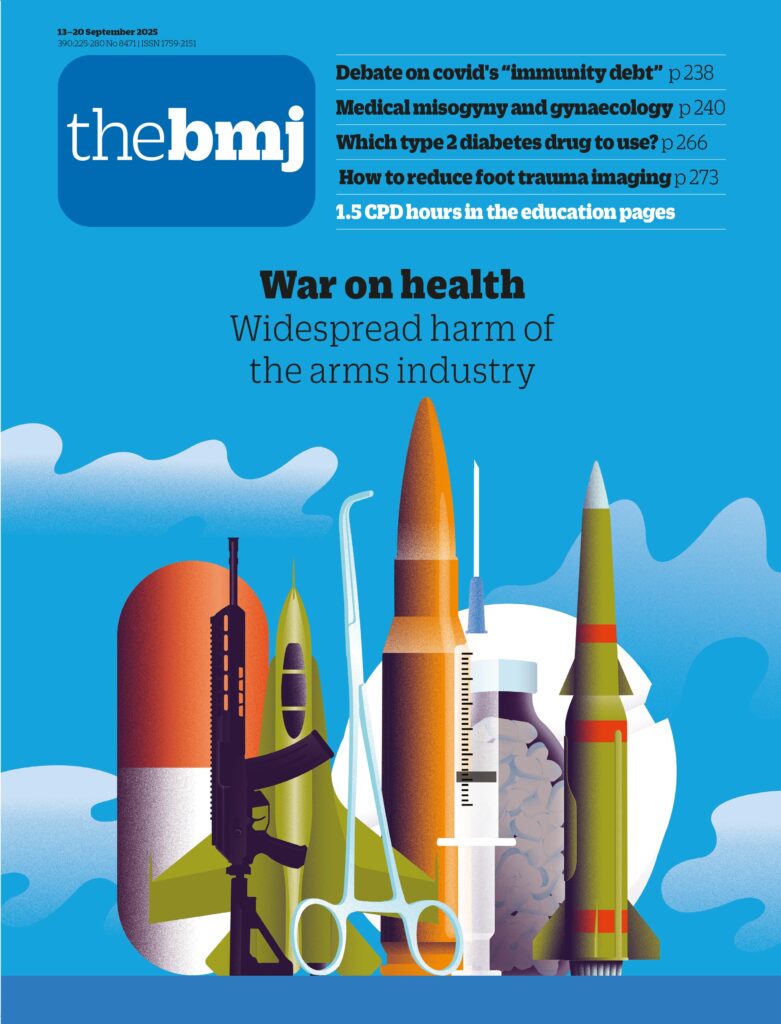BMJ journalists have won three prizes at the 2025 Medical Journalists’ Association (MJA) awards this week, including for investigative reporting and mental health journalism.
The MJA awards shine a spotlight on the best in health and medical journalism across the UK, and the work of writers, editors, and broadcasters.
Jennifer Richardson, The BMJ’s investigations and senior features editor, was named editor of the year for a special investigative series on children and food, which revealed industry ties1 to government diet guidance, food companies’ infiltration2 of schools, and tactics used by fast food giant McDonalds3 to roll out new branches. Judges said the series uncovered “powerful and compelling new angles on well covered topics.”
Elisabeth Mahase, BMJ careers editor, won news story of the year (specialist audience) for her “thoughtful and well researched” investigation4 into obesity services in England. She found that access to comprehensive weight loss services is being restricted by cash poor integrated care boards, with many patients being denied specialist drugs, surgery, and support.
Adele Waters, a BMJ freelance journalist, received the mental health story of the year award for her coverage of doctor suicide. Her story,5 featuring testimonies from clinicians and a focus on workplace pressures, was praised for its nuanced reporting which avoided simplification.
Many BMJ journalists were finalists at the awards: Margaret McCartney and Deborah Cohen for their critical look6 at the Galleri blood test; Hristio Boytchev, Natalie Widmann, and Simon Wörpel for their investigation7 into medical research funded by the fossil fuel industry; Katharine Lang, a BMJ contributor, for her popular explainer piece8 about covid-19’s effects on the gut; and Rebecca Coombes for an investigation9 into an unethical infant feeding pilot funded by a leading formula company.
MJA chair Shaun Lintern, health editor of the Sunday Times, said the awards “remind us of the value of our craft: to hold power to account, to tell difficult truths, and to make health and medicine accessible and human.”

